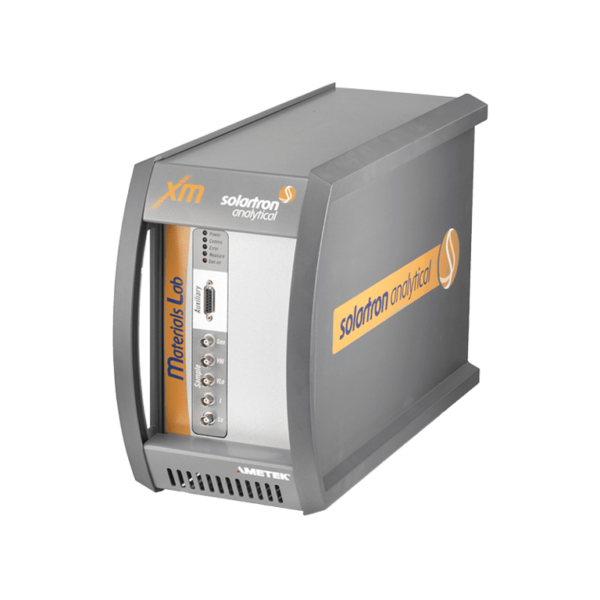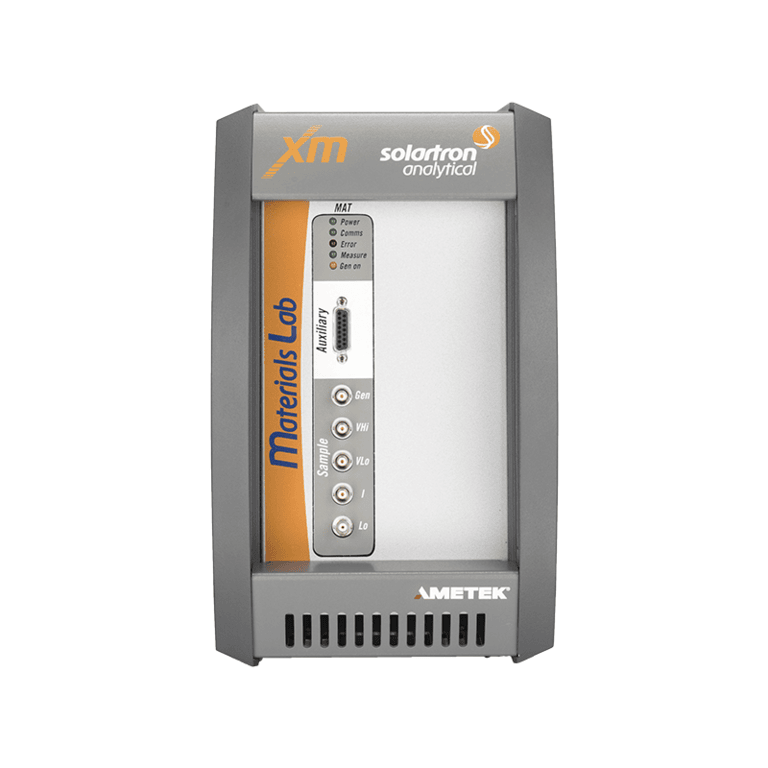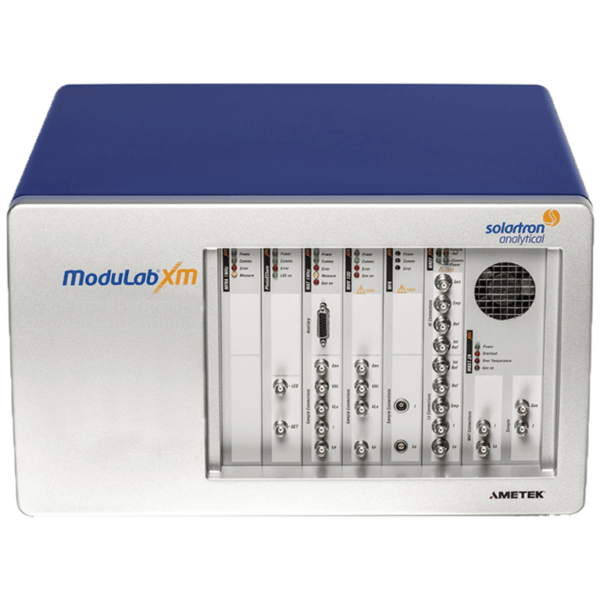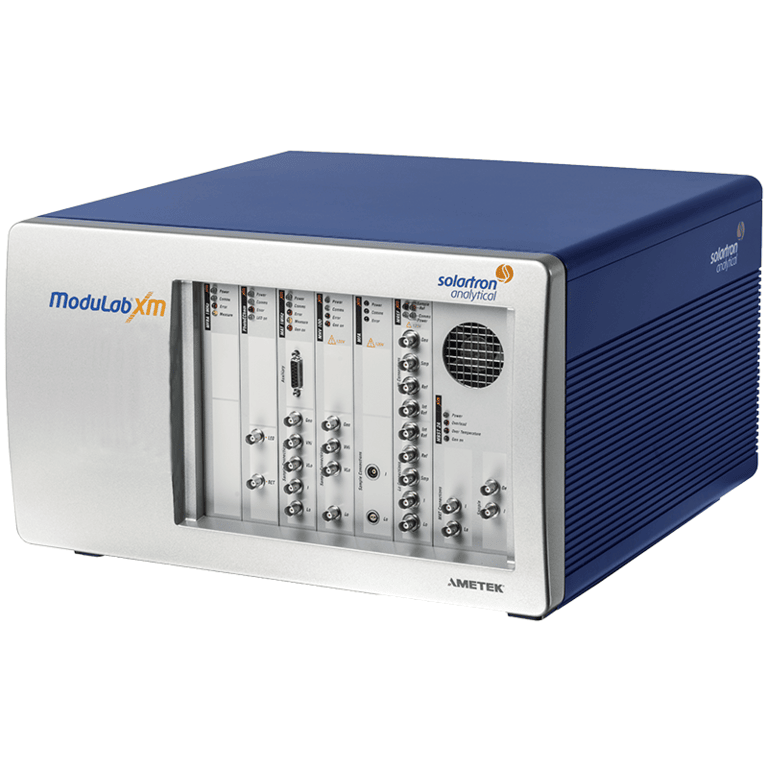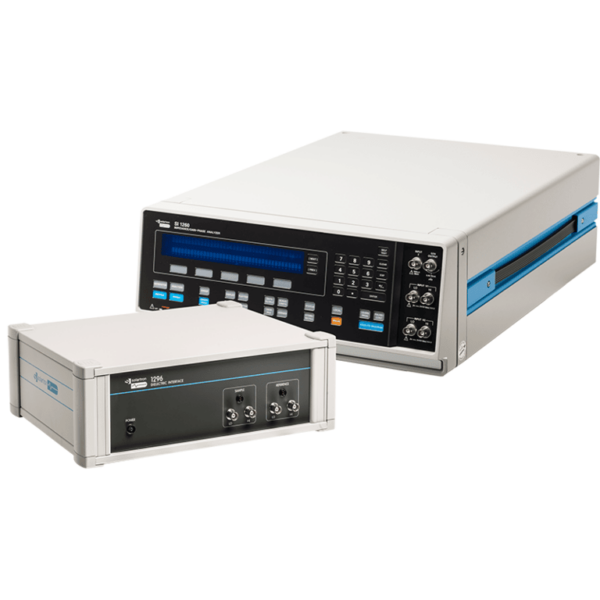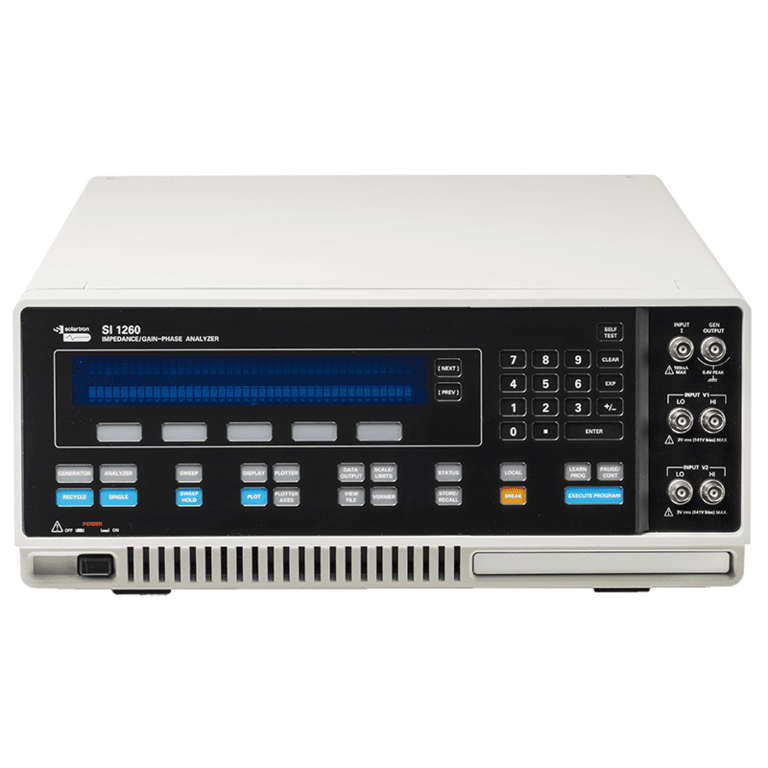Materials Test Systems
What is an Impedance Analyzer?
An impedance analyzer is a device that uses a programmable AC voltage / current source, together with voltage and current measurement circuits, to characterize sample impedance over a wide range of frequency. An example of this being the world famous Solartron Analytical 1260A Impedance Analyzer that provides EIS impedance characterization over more than 12 decades of frequency from uHz to tens of MHz. Impedance Analysis characterization is a key technology that enables new materials development for semiconductors, smart-materials, ferroelectrics, piezo-electrics, solid oxide, solid electrolytes, ceramics, polymers, OLED and many more materials.
How do Impedance Analyzers work?
In most cases a sinusoidal waveform is applied to a sample at a set frequency, and the AC voltage across the sample and AC current through the sample are measured. The measurements provide very accurate magnitude and phase information for the voltage and current, and division of one by the other reveals the sample impedance. For resistive samples the voltage and current waveforms are in-phase, but for capacitive or inductive components, the phase will be shifted away from zero. The frequency of the sinewave is typically swept over a wide range to fully characterize the sample.

